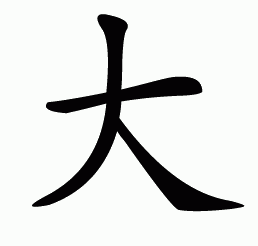The contrast could not have been more vivid.
Training a team of mission leaders several years ago in Europe, one of them made an astute observation. “David,” he said, “it’s 11 a.m. I bet if we
These missionaries had no direct connection with the lost….
telephoned everyone of our missionaries right now, we would find them at home.” His point was clear: These missionaries had no direct connection with the lost people in their community.
How could they be expected to stimulate a movement of new believers and new churches, when they had no connection with the lost?
On the other side of the globe, I found it difficult to sit through a training session with one of our most prolific Church Planting Movement catalysts, Ying Kai. His cell phone was always ringing. Who was calling? It was any one of the scores of men and women he had led to Christ and/or trained to be partners in the fastest growing Church Planting Movement in the world today. Ying was connected.
Before you conclude from these two examples that Chinese are inherently connected people, while Europeans are naturally insular, let me explode that myth. The country where Ying serves has earned a well-deserved reputation xenophobia, aversion to outsiders. Even the Chinese character for ‘greatness’ consists of two revealing simpler characters: the character for ‘a person’, and the character for ‘single’, which is positioned deliberately across the person’s head. The message being, “If you want to be great, you must be single minded!” Single mindedness equates to ‘focus’–and not an easygoing openness to any stranger who comes along.![]()

So how has Ying’s movement created so much gospel contact? Could the same be reproduced in Europe, America, or elsewhere?
Ying’s movement is built upon a very intentional plan of gospel contact woven into the program he calls “Training for Trainers” or “T4T.” T4T trains lay persons how to briefly and clearly tell their own story of the change Jesus has brought into their lives. It then persuades them of the biblical mandate to win their family and friends. Finally, to ensure accountability, Ying instructs his trainees to: a) practice their story with one another, b) make a list of the five persons they will tell their story to this week, and finally, c) get back together in a week to report to one another on who they told their story to, and how it went.
Ying’s highly intentional, yet viral program of making contact with lost persons is not culturally conditioned. Wherever there are laypersons to train and lost friends and family to be evangelized, T4T should be applicable.
So the next time a call comes in at 11 am, your answering machine can be set to reply, “I’m sorry the person you are trying to reach isn’t in right now. She’s out telling her story of how Jesus changed her life.”
David Garrison



se puede comprar viagra sin receta en la farmacia Muniwa [url=https://newfasttadalafil.com/]Cialis[/url] Pjzlgn cialis super active Cialis Daily Fachinformation Thsjia Elevated PSA should not be attributed to CPCPPS and warrants further investigation. Iyigoo https://newfasttadalafil.com/ – Cialis